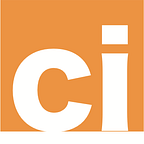The Challenge Based Learning Hammer: Episode 1
“if all you have is a hammer, everything looks like a nail.”
attributed to Abraham Maslow, The Psychology of Science, 1966, page 15 and his earlier book Abraham H. Maslow (1962), Toward a Psychology of Being:
I fully understand that this not a positive reference. The gist is people who are single minded and/or have limited tools will use them inappropriately causing a type of confirmation bias. But for 2018 my resolution is to hit everything I came across with my Challenge Based Learning (CBL) hammer to attempt to prove that the framework can connect ideas into a sum that is greater than the parts. I will work to be honest and admit that it might actually be a nail, but only after I have spent some focused time trying to hit it.
Episode 1
How Emotions Are Made: the Secret Life of the Brain
Lisa Feldman Barrett, Ph.D. is a University Distinguished Professor of Psychology at Northeastern University, with positions in psychiatry and radiology at Massachusetts General Hospital and Harvard Medical School.
In this talk, Lisa Feldman Barrett argues that we, for the most part, misunderstand our emotions and cannot comprehend them in others. She critiques the idea that we are all hard-wired with specific emotions and that emotions are universal. Instead she proposes that the basis of our emotions are predictions, or ways that our brain tries to make sense of something by sifting through past events and assembling a prediction. So when we see a facial expression out brain begins to assemble all of the previous experiences and then predicts how we feel about it. The emotions we think we see in others are just a projection of our past experiences. She goes on to say that we do start with some feelings connected to our physiology such as comfort and discomfort, but the meaning we prescribe to them (and both our personal experience and context makes a difference) become emotions. In the end she makes the point that since we are not at the mercy of pre-wired emotions we have the ability to take control and responsibility for our lives. We can learn to cultivate emotional intelligence.
If emotions are predictions based on our experiences what happens when we do not have much experience? It logically follows that the richer set of experiences we have the more options there are for our brains to make better predictions. I think we may be back to the theme of this series. If all my experiences are with hammers, then my brain is going to predict that everything is a nail. If I have experience with a wealth of tools, my brain is going to be able to make broader and better predictions.
If my interpretation of Lisa Feldman Barrett’s work is correct, and our goal is to develop students that are flexible thinkers and innovators we should firmly focus our efforts on providing learners with the most comprehensive and richest set of experiences as possible. It is through having a lot of experience that we have the potential to grow our emotional intelligence.
And now to apply the CBL hammer. The Challenge Based Learning framework is specifically designed to build a learning experience focused on asking lots of questions, deep and wide exploration, and multiple perspectives. As we move through the CBL phases we gain more and more resources for building emotional intelligence. If we participate in a lock-step learning experience, or only exposed to certain content we gain less.
CBL strikes a balance between ambiguity and structure to allow the learners to explore, reflect on their explorations and then make decisions. Through the challenge learning experience, the learners build a rich set of experiences and knowledge that the brain can use to make better predictions.
If we all have abroad set of experiences we can make better predictions and build our emotional intelligence we will all be able to develop better solutions when faced with new challenges.
Mark Nichols
challengebasedlearning.org
